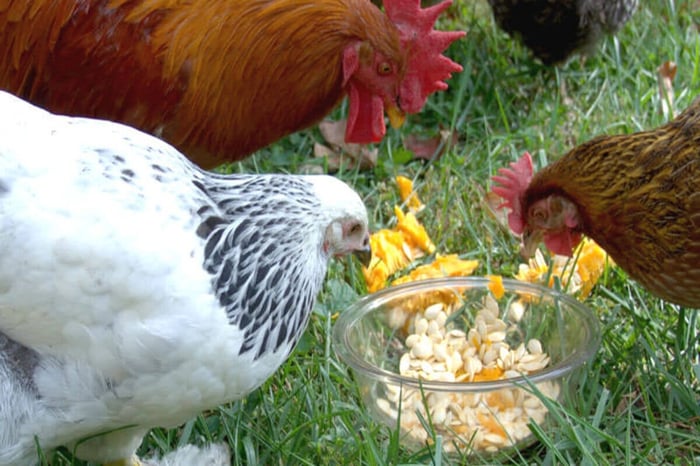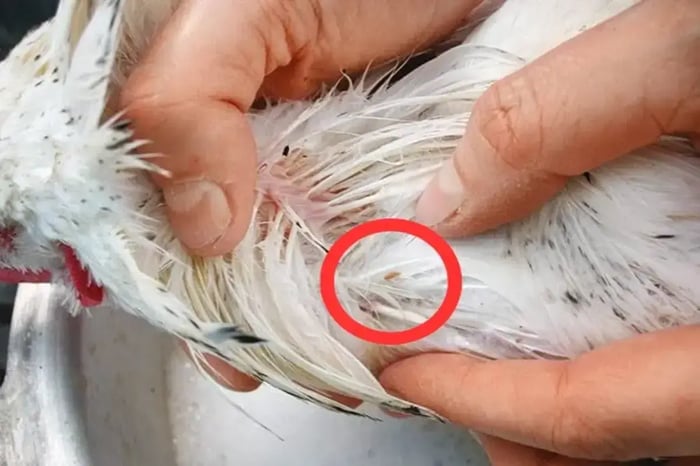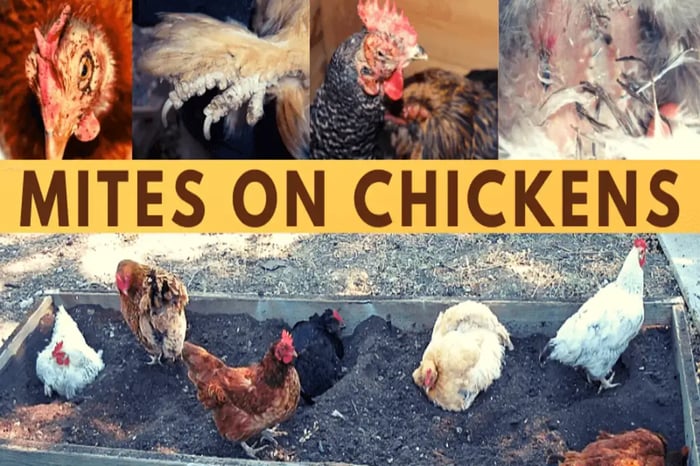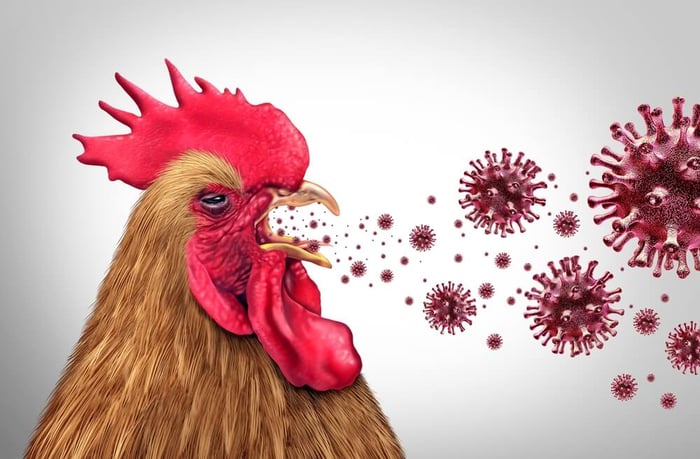Table of Contents
Keeping your chickens healthy and productive is a top priority for all of us backyard chicken owners. One essential aspect of flock care is deworming. Internal parasites, particularly worms, can wreak havoc on your chickens’ health, leading to decreased egg production, weight loss, and even death in severe cases. In this comprehensive guide, we’ll explore everything you need to know about chicken dewormer, from understanding why they are necessary to implementing an effective deworming strategy.
What is Chicken Deworming?
Chicken deworming is the process of administering treatments to eliminate internal parasites, primarily worms, from a chicken’s digestive system. These worms can cause significant health issues if left untreated, affecting the overall well-being and productivity of your flock.
Common types of worms that affect chickens include:
Roundworms: Found in the intestines, they can grow up to several inches long and are visible in droppings.
Tapeworms: Segmented worms that attach to the intestinal lining and can cause malnutrition.
Gapeworms: These worms lodge in the trachea, causing respiratory distress.
Cecal Worms: Found in the ceca, they are usually less harmful but can still lead to health issues.
Why is Chicken Deworming Necessary?
Internal parasites can severely impact a chicken’s health and productivity. Here are the main reasons why deworming is crucial:
Improved Nutrient Absorption: Worms compete with chickens for nutrients, leading to malnutrition and stunted growth.
Enhanced Egg Production: Healthy chickens produce more eggs, and deworming ensures that their energy isn’t diverted to fighting parasites.
Prevention of Secondary Infections: Parasites can weaken a chicken’s immune system, making them more susceptible to diseases.
Overall Well-being: A worm-free chicken is more active, healthier, and happier.
Signs of Worm Infestation
Recognizing the signs of worm infestation is the first step in effective management. Common symptoms include:
Weight Loss: Chickens may lose weight despite eating well.
Decreased Egg Production: A sudden drop in egg yield can be a sign of health issues.
Diarrhea: Persistent loose stools are a common symptom.
Lethargy: Infected chickens often appear weak and less active.
Visible Worms in Droppings: Sometimes, you can see worms in the feces.
If you observe these symptoms, consult a veterinarian and conduct a fecal examination to confirm the presence of worms.
How to Choose the Right Dewormer
There are various dewormers available, each targeting specific types of worms. Here’s a breakdown of some commonly used products:
Fenbendazole:
Effective against roundworms, hookworms, and some tapeworms.
Safe for use in poultry with proper dosage.
Levamisole:
Broad-spectrum dewormer effective against roundworms and cecal worms.
Requires careful dosing.
Ivermectin:
Primarily used for external parasites but also effective against some internal worms.
Not officially approved for use in poultry but commonly used off-label.
Praziquantel:
Specifically targets tapeworms.
Often combined with other treatments for broad-spectrum efficacy.
When selecting a dewormer, always follow the manufacturer’s instructions and consult with a veterinarian to ensure proper usage.

Natural Alternatives to Dewormers
For those who prefer a natural approach (that's us), there are several options can help reduce worm loads:
Diatomaceous Earth:
Adding food-grade diatomaceous earth to feed can help reduce internal parasites.
Garlic:
Known for its antiparasitic properties, garlic can be mixed into feed or water.
Herbal Remedies:
Wormwood, pumpkin seeds, and other herbs are believed to have natural deworming effects. If you have questions on what can chickens eat see our authoritative guide.
While natural methods may help prevent infestations, they are generally less effective than pharmaceutical treatments for heavy worm loads. That said an ounce of prevention is worth a pound of cure and we love keeping it natural so try that first.
Chicken Deworming Schedule
A regular deworming schedule is essential for keeping your flock healthy. The frequency depends on factors such as environmental conditions and the presence of worms in your area. A general guideline is:
Deworm adult chickens every 3 to 6 months.
Monitor young chicks closely and consult a vet if worms are suspected.
Keep detailed records of deworming dates, products used, and any observed side effects.
Preventive Measures to Reduce Worm Infestations
Prevention is always better than cure. Implementing good management practices can significantly reduce the risk of worm infestations:
Maintain Clean Coops:
Regularly clean the coop and replace bedding to minimize parasite eggs.
Rotate Grazing Areas:
Move your chickens to fresh ground periodically to break the parasite life cycle.
Provide Clean Water:
Ensure a constant supply of clean, fresh water.
Avoid Overcrowding:
Provide adequate space to reduce stress and disease transmission.
Use Feeders and Waterers Wisely:
Keep feed and water containers elevated to prevent contamination with feces.
Common Myths About Chicken Dewormer
There are several misconceptions about using a chicken dewormer that can lead to ineffective parasite control. Let’s address and debunk some of these myths to help you make informed decisions for your flock:
1. Chickens Don’t Need a Dewormer if They Look Healthy:
Even if your chickens appear healthy, they might still carry internal parasites. These worms can multiply silently, eventually leading to severe health issues. Regular use of a chicken dewormer ensures that your flock remains healthy and productive.
2. Natural Remedies Can Replace a Chicken Dewormer:
While natural remedies like garlic or diatomaceous earth can help manage worm loads, they often aren’t potent enough for heavy infestations. A reliable chicken dewormer is essential for eliminating worms effectively, especially in advanced cases.
3. One Deworming Treatment Per Year is Enough:
The frequency of administering a chicken dewormer depends on factors like your flock’s environment and exposure to parasites. Experts recommend deworming every 3 to 6 months for comprehensive parasite control.
4. All Chicken Dewormers Work the Same Way:
Not all chicken dewormers are created equal. Different dewormers target specific types of worms, and using the wrong one may not solve the problem. Choosing the right chicken dewormer is critical, which is why consulting a local expert or a veterinarian is essential.
5. You Can’t Eat Eggs After Using a Chicken Dewormer:
While some chicken dewormers require a withdrawal period where eggs should not be consumed, this isn’t always the case. Check the product label for clear instructions to ensure safe egg consumption after treatment.
Administering Chicken Dewormer: Best Practices
Administering dewormers correctly ensures their effectiveness and the safety of your flock. Follow these steps:
Read the Label:
Carefully review the instructions and dosage recommendations.
Mix with Feed or Water:
Many dewormers are designed to be mixed with feed or water for easy administration.
Isolate Treated Birds:
Separate treated birds to monitor for side effects and prevent overexposure in untreated birds.
Observe Withdrawal Periods:
Most dewormers have withdrawal periods during which eggs and meat should not be consumed. Follow these guidelines strictly.
Best Product Recommendation
For an effective and reliable dewormer, consider the Poultry Protector Spray from The Chicken Coop Company. This product supports overall health by addressing both internal and external parasites, making it a versatile choice for poultry keepers. Visit the Chicken Coop Company’s Health Products Section to explore their full range of dewormers and health solutions for your flock.
Consulting a Veterinarian
Before starting any deworming regimen, consult a veterinarian experienced in poultry health. They can:
Identify the specific type of worms affecting your chickens.
Recommend the most suitable dewormer.
Provide guidance on dosage and administration.
Regular veterinary check-ups and fecal examinations are crucial for maintaining flock health.
Conclusion
Deworming is a vital component of poultry care, ensuring your chickens remain healthy, active, and productive. By understanding the types of worms, recognizing symptoms of infestation, and implementing a strategic deworming plan, you can protect your flock from the harmful effects of parasites. Combine regular deworming with preventive measures and professional guidance to keep your chickens thriving year-round.
FAQs
Does pumpkin deworm chickens?
There is no evidence that pumpkin or pumpkin seeds act as a general dewormer in chickens. Let's look at the seed of truth that lies within this commonly parroted claim and understand why the claim is false. Innocent until proven guilty.
What is a good chicken dewormer?
THe best chicken-wormer , Flubendazole: Is generally considered safe when administered correctly. NO Withdrawal periods need for egg layers. Moxidectin: Generally safe when used according to the recommended dosage. There is a recommended withdrawal period for egg-producing chickens.
Can chickens eat watermelon?
Watermelon is another fantastic treat for chickens, especially during hot weather. It's hydrating and packed with vitamins, providing a refreshing snack. Chickens can eat all parts of the watermelon, including the rind, flesh, and seeds. Just cut it into manageable pieces to make it easier for them to peck at.
Can chickens have raw carrots?
Carrots are a good source of beta carotene and fiber, and chickens enjoy pecking at them. You can feed carrots to your chickens either raw or cooked.






